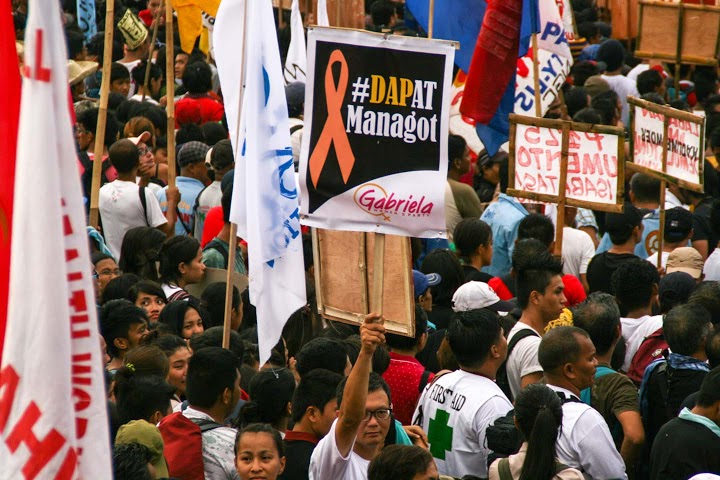ON JULY 1, the Supreme Court (SC) ruled that certain acts and practices in the Disbursement Acceleration Program (DAP) were unconstitutional.
Also known as the presidential pork barrel, the DAP used the savings generated by government to augment deficient programs and projects, pending the approval of the president.
The DAP was originally a mechanism designed to ramp up economic expansion. According to Tony La Viña, dean of the Ateneo School of Government, it was also intended to accelerate spending for priority projects, as there was a slowdown in project implementation in 2010 and 2011. TheDAP was created and implemented in October 2011 by President Benigno “Noynoy” Aquino III’s administration.
Dissecting the decision
The SC declared three schemes under the DAP as unconstitutional.
First is the definition of savings. The SC defined savings as funds that remained unspent after the completion or dissolution of a project or program. However, according to a Rappler article,Budget Secretary Butch Abad consolidated savings and unused funds to “finance the DAP on a quarterly basis.” This decision shortened the time that these savings were supposed to be available for—according to Congress, savings should be available for a period of one fiscal year—and made the administration’s own definition of savings unclear.
The second is the cross-border transfer of savings from one branch of government to another. La Viña says that these transfers essentially dilute the independence of other branches of government. “You cannot use the money that you have saved to help another branch of government,” he explains. “It’s like bribing the other agencies so [that they] will do your bidding.”
Lastly is the allotment of funds for projects and activities not outlined in the General Appropriations Act (GAA), also known as the annual budget of the country. According to La Viña, savings from previous projects cannot be used to create a new item or category not already found in the GAA.
But the decision is not without its problems. La Viña criticizes the SC for stating that “authors, proponents and implementors of the DAP may be held liable unless a proper tribunal found that they acted in good faith.”
“It seems like the court reversed the presumption of good faith into a presumption of bad faith and the presumption of innocence into a presumption of guilt. That’s wrong. No government employee should feel that they have to prove that they are in good faith every time that they do their jobs,” argues La Viña.
PDAF vs. DAP
On July 14, Aquino defended the legality of the DAP in a televised speech. He mentioned its stark differences against the Priority Development Assistance Fund (PDAF), a discretionary fund given to members of Congress for small-scale community projects. He was quoted as saying that the PDAF was distributed to bogus non-governmental organizations and accused lawmakers. He also assured the public that the DAP money was not stolen.
Hansley Juliano, a lecturer from the Political Science Department, says that the DAP is limited to the executive branch, while PDAF “establishes a relationship with the executive and legislative.” He also says that both were declared unconstitutional due to their violation of “the separation of powers.” While the DAP “gives the executive department undue influence on the legislative,” says Juliano, the PDAF gave lawmakers the power to execute and implement laws, a power that is exclusive to the executive branch.
However, Arjan Aguirre, an instructor at the Political Science Department, both the PDAF and the DAP “are discretionary in nature.” He says that the similar nature of the two stirs confusion among people who mistake the DAP for the PDAF.
Aguirre finds the scheme problematic, as both programs are prone to abuse. “[The mechanism] is based on the decision of the executive branch, and at present, our government doesn’t have the mechanism to make sure the funds can be spent in a transparent manner,” he says.
Juliano agrees, saying, “The issue is whether our public officials source [these discretionary funds] from taxpayers’ money—and that includes the president. And that is the entire problem with DAP.”
Political maturity
Impeachment complaints have been filed against Aquino over the DAP. The first valid complaint was filed by Bagong Alyansang Makabayan, an alliance of leftist organizations, but it was later dismissed by Malacañang, saying the president did not violate the law upon the implementation of the DAP. The second one was filed by youth groups, led by Youth Act Now and endorsed by Kabataan Party-list Representative Terry Ridon.
Juliano sees this impeachment issue as a question of “political maneuvering” over legality. “A violation of the constitution was made. Someone has to be made responsible for it. And if that someone is the president, he is culpable for impeachment,” he says.Juliano adds that there is also a need to take into account the funds the administration releases. He doubts, however, if the case will succeed.
Aguirre echoes the same sentiments, but he believes that the government can justify the DAP and release documents to support it.
He also observes that people starting to demand for answers, calling it a sign of “political maturity.” “In the past, during the time of Gloria Macapagal-Arroyo, we just don’t want to talk about the issue. Now, the government is so willing to explain,” Aguirre says.




